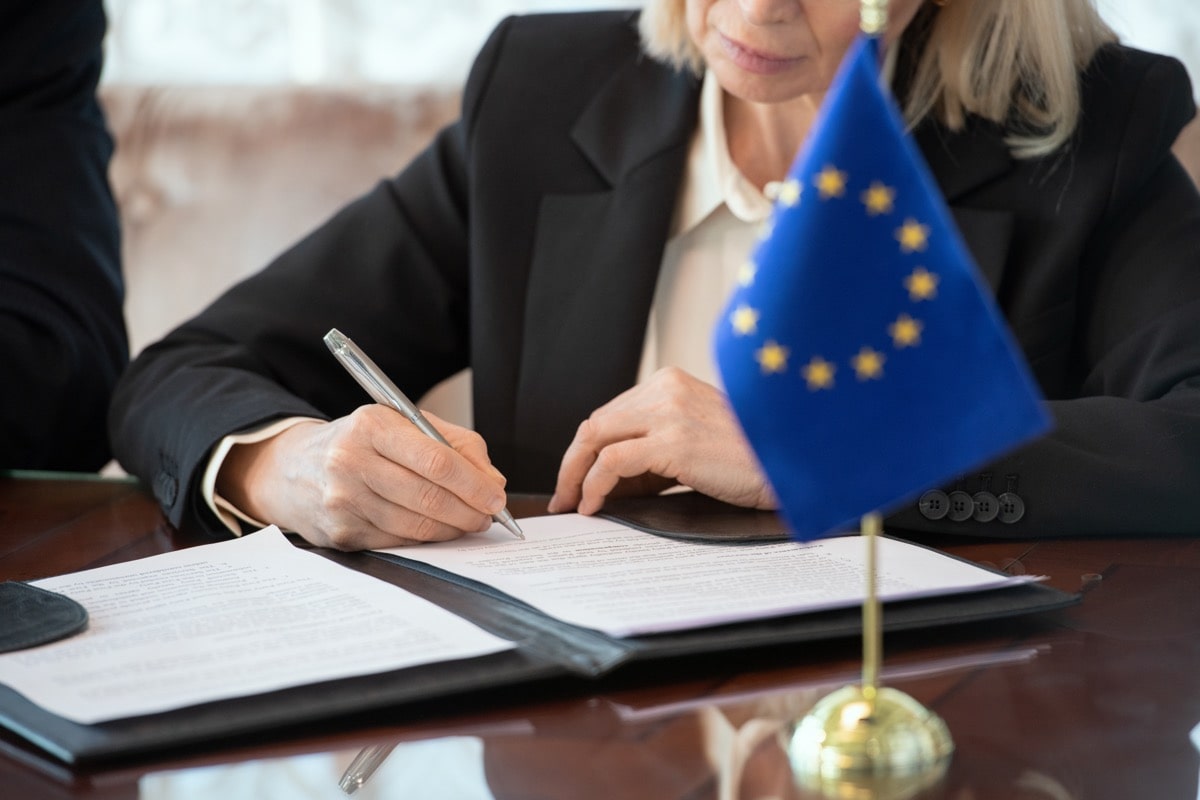The EU regulators have come up with a list of so-called gatekeepers with enough market power to report their core platform services to the European Commission under the Digital Markets Act (DMA)

The European Union has designated six tech giants having enough of a market share to comply with a new set of pro-competition rules within the frameworks of the Digital Markets Act (DMA). The list of so-called “gatekeepers” includes Alphabet, Amazon, Apple, ByteDance, Meta and Microsoft.
The status of a gatekeeper was assigned on the following basis:
- 45 million+ active local users;
- turnover of €7.5BN+ in the last three financial years;
- market capitalization that exceeds €75B;
- ability to gain an “entrenched and durable” position in the “near future”.
According to the European Commission, a total of 22 “core platform” services operated by these six gatekeepers have been selected to meet the DMA criteria. For instance, Alphabet’s online intermediation and other digital services include Google Play, Google Maps, Google Shopping, Google Search, YouTube, online advertising service, Android Mobile, and Google Chrome browser.
Overall, the list features four social networks (TikTok, Facebook, Instagram, LinkedIn), six intermediation services, two browsers, three operating systems, two messengers, one search engine, and one video-sharing platform. The email services of the designated companies were not justified as core platform services, though.
The list almost coincides with previous expectations, except for the absence of Samsung, which was also speculated to end up among the gatekeepers.
After its initial proposal in December 2020, the landmark European Digital Markets Act (DMA) got an agreement from the European Parliament and the Council in March 2022. On November 1, it officially entered into force.
Setting regulatory thresholds for the companies which should be classified as “gatekeepers” subject to stricter market rules was finalised in May 2023.
According to the set timeline, the Commission assessed each company’s core business impact on the internal EU market and determined whether it should count as a gatekeeper and follow DMA rules.
From now on, the selected gatekeepers will have six months to comply with DMA requirements, at the latest by 6 March 2024.
Those companies concerned will have to comply with strict requirements, which should prevent market monopoly or unfair privileges. These include:
- not rank their own services and products higher than similar third-party services or products
- give users the possibility to uninstall any pre-installed software or app
- allow third parties to interoperate with their services (exchange messages or files across messaging apps)
- provide app developers and third-party service providers with access to device functionalities such as NFC, secure elements and processors, authentication mechanisms and related software
- allow business users to access the customer data they generate in the gatekeeper’s platform to promote their offers and contracts outside the big platforms
- allow users to easily acquire content, subscriptions, features or apps from other app stores
- not process users’ data combined from different sources for targeted advertising unless they explicitly grant consent
- report to the Commission on all digital-sector-related and data-related M&A transactions









